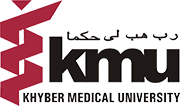MPhil Dental Materials
Department of Dental Materials:
The primary objective of dentistry is to preserve and enhance the quality of life of dental patients. This objective may be achieved by avoiding illness, alleviating discomfort, promoting mastication efficiency, enhancing speech, and enhancing aesthetics. As many of these goals need the replacement or modification of tooth components, the primary problem for centuries has been the research and selection of biocompatible and durable therapeutic and prosthetic materials that can endure the increased risks of the oral environment.
Hence, dentists have a variety of professional goals, including the design, construction, and evaluation of equipment or constructions exposed to various environmental conditions. Dental Materials is the study of the composition, characteristics, and interactions of materials used in dentistry.
Mission – MPhil Dental Materials
The MPhil Dental Materials program aims to develop competent educators and emerging researchers in dental materials science who possess a strong foundation in the structure, properties, processing, and clinical applications of dental biomaterials. The program prepares graduates to effectively teach undergraduate dental and allied health students and to engage in applied and translational research relevant to restorative dentistry and oral healthcare.
The program is committed to social accountability by promoting research and education that address the oral health challenges of Pakistan through the selection, evaluation, and innovation of cost-effective, safe, and evidence-based dental materials. Emphasis is placed on developing professionals with sound scientific knowledge, research skills, ethical values, and critical thinking abilities required for responsible academic practice, lifelong learning, and contribution to national oral health priorities.
Courses:
Knowledge of dental materials is necessary for appropriate selection of materials, comprehension of their behaviours, application, handling, and manipulation, and safety issues. It covers materials used in preventative, restorative, and prosthetic dentistry, such as resin composites, cements, glass ionomers, ceramics, base and noble metals, amalgam alloys, gypsum materials, impression material, and many more. Importance of the information's ability to anticipate clinical performance and assess the reason of failure of different materials. Dental materials also use engineering, physics, chemistry, and biological aspects. As an outcome, the mechanical and physical properties of the materials and devices may be better comprehended, and appropriate therapeutic services can be provided.
Science of dental materials at the post-graduate level teaches students the clinical, technical, and scientific justification for the use of dental materials in clinical dentistry practice. The course is aimed to expose students to dental materials science, ease their study of physical and chemical features important to the dentist's selection of these goods, and identify aspects that impact their biological safety. The laboratory component of the course consists of hands-on experience with the materials and their manipulation.
The dental materials course is structured around a dynamic organization of mechanical properties, composition, scaffolds, characteristics, and rheology of materials. Still, throughout the course, time is devoted to reviewing information from a systemic perspective, as proper comprehension necessitates the use of both approaches.
Regarding teaching and learning, each lecture session of the curriculum starts with a list of "Course Objectives" that outline the schematic approach and ideas. The purpose of the goals list is to assist scholars in focusing their study time on needed material rather than speculating what the teacher wants them to recall and understand.
The course outline is intended to act as a guide for this learning process. The course outline and accompanying goals are intended to direct study time. In addition, homework assignments are assigned to enable learners apply basic knowledge in clinical settings, evaluate their own clinical knowledge, and prepare for their summative assessment. The following list of goals is generic in nature and contains the fundamental philosophy behind all sessions.
Specialty Courses in MPhil. Dental Materials:
This program is designed in a step ladder manner starting from:
Fundamentals of Dental Materials will consist of General categories of Biomaterials, Applications and standards of Dental materials, International standards.
Indirect and Auxiliary Dental Materials will feature Classification of impression materials, Elastomeric impression materials its making and properties, Hydrocolloids, Inelastic impression materials, Applications of bonding, Mechanisms of adhesion, Smear layer, Acid etch technique, Dentine bonding agents, Luting agents and resin cements.
Biocompatibility & Biological interactions of Dental Materials will consist of Anatomical and pathological aspects of oral tissues (The tooth, Bone, Periodontium, Gingiva, and Mucosa), Measuring biocompatibility (In vitro tests, Animal tests, Usage tests), Correlation among in vitro, animal, and usage tests, using in vitro, animal, and usage tests together, Standards that regulate the measurement of biocompatibility, Biocompatibility of dental materials.
Characterization of Dental Materials comprises of Mechanical properties (stress-strain behaviours, mechanical failure, viscoelasticity), Thermal properties, Phase diagrams, Strengthening by heat treatments (Metals, Ceramics and glasses, Polymers and elastomers), Surface properties and adhesion, Electrical properties, Optical properties, X-ray absorption, Density and porosity, Acoustic and ultrasonic properties, Diffusion properties, ISO standards used in dentistry, Basics of UV spectroscopy, FTIR, Raman, UTM, SEM, XRD, AFM, Density kit, and electronic balance.
Emerging technologies & Advanced Dental Materials will feature Biomaterials, Biological materials, Instruments and processes, Environmental considerations, CAD-CAM, Biomimetic, Haptics, Chondrogenesis, Cytology, Nano-technology, Osteo-conductivity.
Journal club discussions will be included into each of the aforementioned courses. These sessions will focus on the evaluation of published works, including original research and review articles. In addition, there will be seminars on literature search, literature review, synopsis writing, and critical review. The faculty will conduct workshops to understand new research techniques for post-grad scholars.
curriculum
DownloadInstitutes offering this Program
- KMU Institute of Basic Medical Sciences, IBMS
